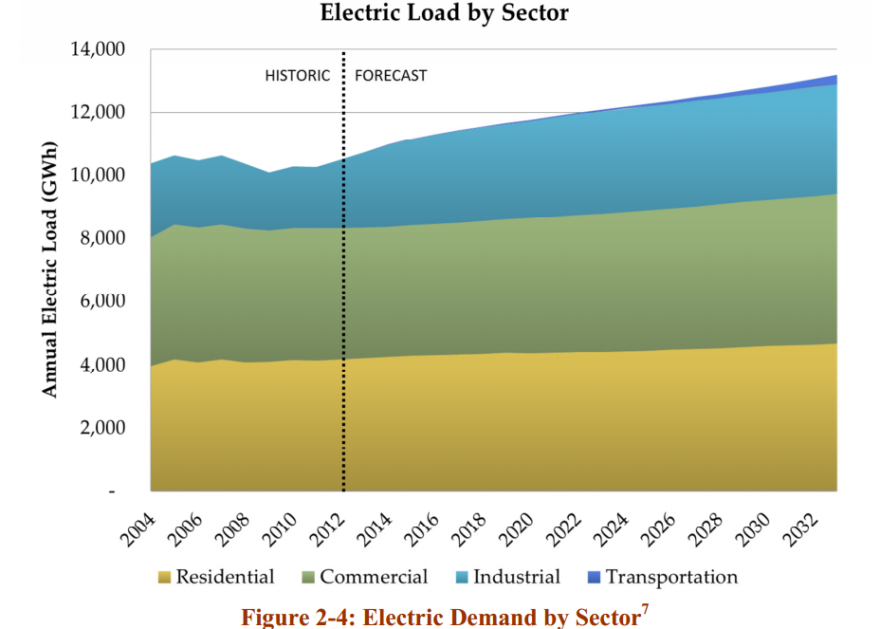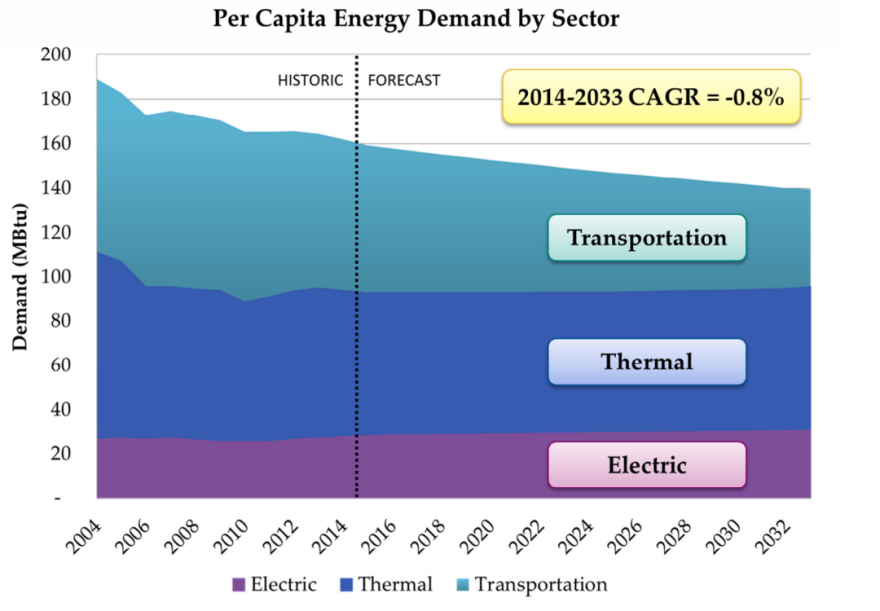New Hampshire officials are working on a new state energy strategy, which is supposed to be a roadmap to a new energy future, but politics may ultimately decide whether the strategy becomes reality.
The energy strategy opens with an “energy vision” that purportedly guides all of the recommendations in the document. In 2025, the vision says “many of the newest homes as well as commercial and public buildings produce as much energy as they consume.” Later it has a section on the “widespread vehicle charging infrastructure” which would allow “residents and business to take advantage of the many options for electric vehicles, plug-in hybrids, and other new transportation technologies.”
“I think it’s made some people chuckle,” Meredith Hatfield, director of the Office of Energy and Planning, told listeners at a recent public input session in Laconia, “It’s pretty blue sky and it talks about a future where we all have electric vehicles, where we all have homes where we produce as least as much energy as we use. But we were really encouraged to think really big.”
But for those in a rush to see New Hampshire no longer using fossil fuels the plan is less impressive.
“A lot of what was in this is very small potatoes stuff, and there seems to be a general lack of go big or go home,” said Gillet from the back of the auditorium.
So which is it: A massive energy rethink, or as Gillet went on to call it, quote a few diddly tweaks?
Really, it’s neither.
“It doesn’t have any teeth grounded in statute or regulation,” says Kate Epsen Executive Director of the New Hampshire Sustainable Energy Association.

The strategy is more of a road-map. It’ll be up to lawmakers to turn it into law.
Hunting For Consensus
It was written by a committee of legislators from both parties, as well as the commissioners of a couple of state agencies and a consultant and is an update to the last ten-year energy strategy which expired in 2012.
There are a lot of suggestions in the document: tweaking the way renewable energy is subsidized, or the way that utilities pay people who have solar power hooked into the grid, or setting up a “Green Bank” that will loan out money for energy efficiency. But in speaking to those involved in drafting the document, if there’s consensus anywhere, it’s around energy efficiency.
“The reason the main emphasis here is on efficiency, some people say it’s to prevent carbon in the atmosphere, but there’s another argument that I consider just as strong and that is to save money,” says Herb Vadney a Republican from Meredith, and member of the committee that drafted the strategy.
Even the utilities, which could wind up selling less electricity if more efficiency programs are rolled out, seem to be supportive.
Public Service of New Hampshire filed comments in support of the energy vision, pointing to all of the work it’s parent and sister companies are doing in Massachusetts, the state which efficiency advocates say is leading the nation.
Hatfield says ultimately if doing things lik

e handing out lightbulbs to customers is cheaper than buying more energy or building more power-plants that will help keep rates down.
“It does seem like momentum is growing in that area,” she observes, “and a lot of our utilities have service territories in other New England states, so they’re actually getting experience implementing much more aggressive efficiency programs which will benefit New Hampshire.”
Sausage to Be Made
But filing public comments on a toothless document is one thing, making a roadmap into actual policy in the political arena is something entirely different.
“I think a lot of it will depend on the election in the fall, and who goes back to Concord,” says Ian Raymond a Democrat from Sanbornton.
He plans to propose an energy efficiency bill straight from the pages of the energy strategy if he manages to maintain his seat.
“One of the issues that came up is that a lot of our towns are turning to ghost towns because people can’t afford to heat the buildings,” says Raymond, “They’re oil heated buildings, and they’re old buildings.”
Some of the recommendations in the strategy can be implemented by state regulators at the Public Utilities Commission. These include things like directing utilities to redesign their rates to encourage efficiency and small-scale local power sources.
But the big stuff has to be done by elected lawmakers. And unlike this wholistic state energy strategy, any policy will likely be done piecemeal.

“It won’t be any one single broad piece of legislation,” says representative Herb Vadney, “I expect it will be several smaller pieces to try and hit some of these items.”
The public can have it’s say on the state energy strategy for another month, and a final draft isn’t due out until September.



